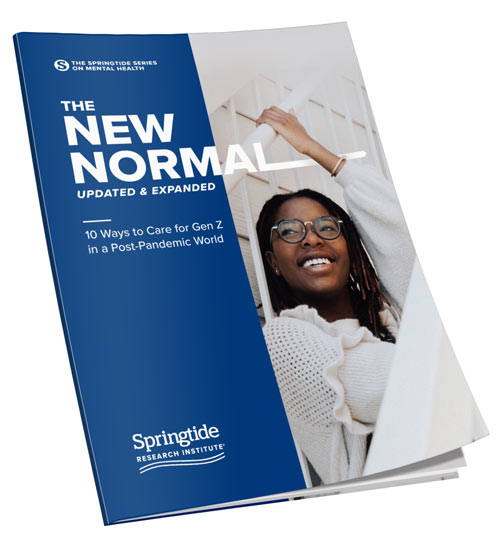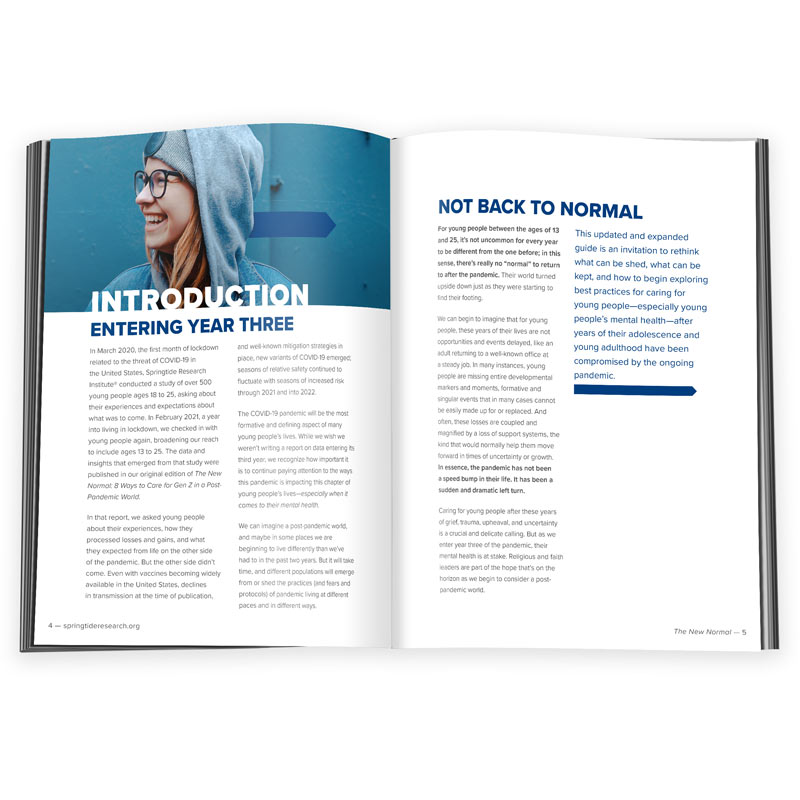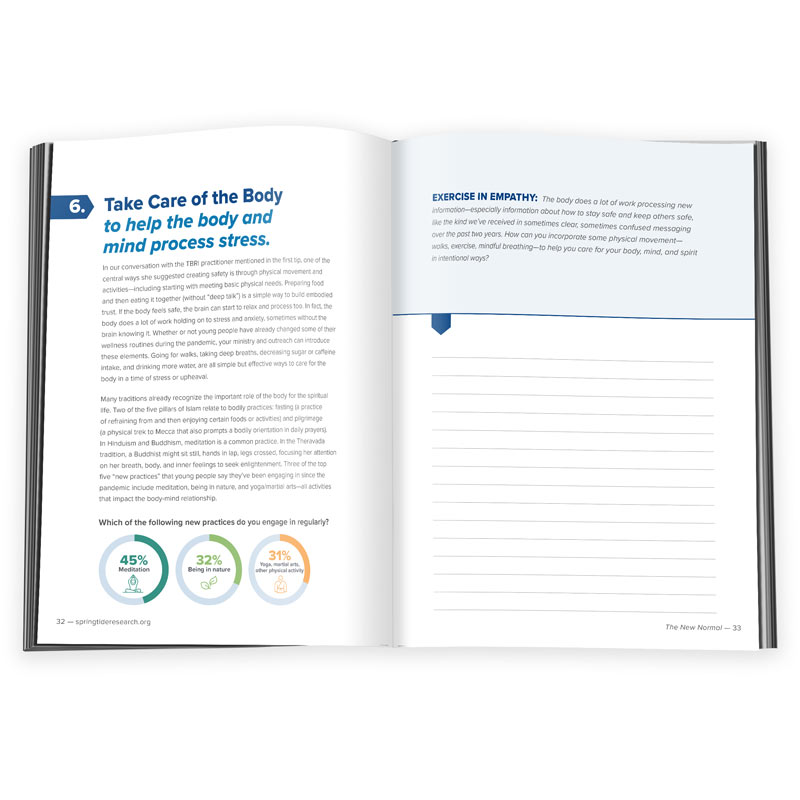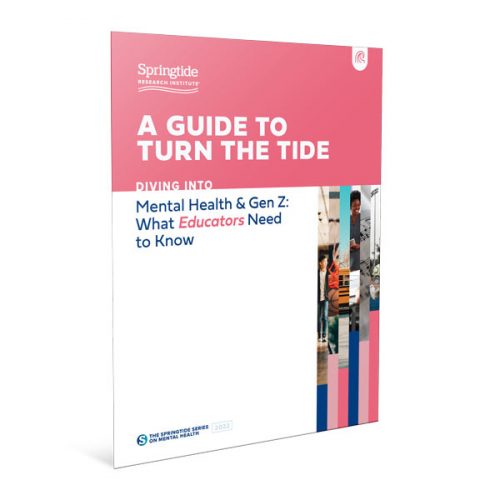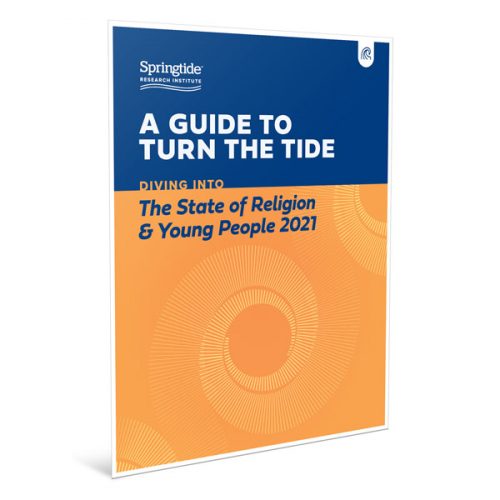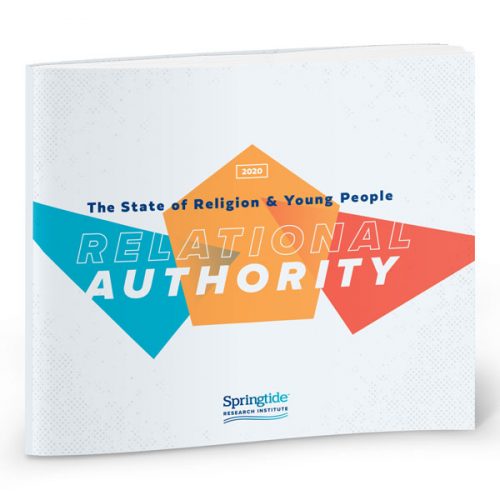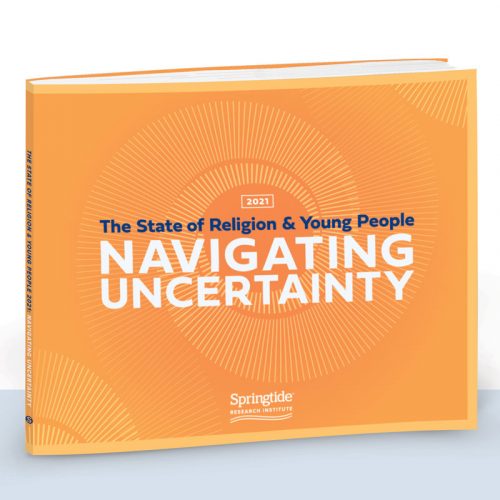The New Normal, Updated & Expanded: 10 Ways to Care for Gen Z in a Post-Pandemic World
$9.95
In the pandemic, 32% of Gen Z had their faith grow. Yet in the same period, a quarter (26%) say their relationship with faith leaders became weaker. You can help them rebuild trust, safety, belonging…and help them flourish.
Our new data-rich workbook, The New Normal, Updated & Expanded, provides religious leaders, educators and parents with new research into the lives of Gen Z during the pandemic, along with insights on how to best care for and walk with young people. Ten exercises will help you and your group take action and care better for young people in this new era.
This workbook will equip your staff, small group, or faculty members with how to best accompany young people with what they need to thrive, now.
Our new data-rich workbook, The New Normal, Updated & Expanded, provides religious leaders, educators and parents with new research into the lives of Gen Z during the pandemic, along with insights on how to best care for and walk with young people. Ten exercises will help you and your group take action and care better for young people in this new era.
This workbook will equip your staff, small group, or faculty members with how to best accompany young people with what they need to thrive, now.
Since 2020, Springtide has been conducting research on how young people have been navigating the experiences of living life in a pandemic and examining the effects on their mental health. Over half (53%) of young people said one of the biggest challenges during the pandemic has been their mental health. Nearly three quarters (73%) agree, “My religious/spiritual practices positively impact my mental health.”
This workbook is part of The Springtide Series on Mental Health. We are responding to the Gen Z mental health epidemic by equipping adults to create mental-health friendly spaces where young people learn, live, work and worship.
There are no editorial reviews.
There are no customer reviews. Click here to submit a review.




